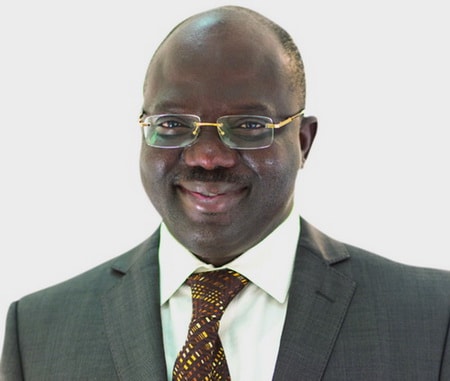
Don't increase electricity tarrifs, Healthlife pleads for manufacturers
The Managing Director of local beverages manufacturer, Healthilife, Pharmacist Kofi Nsiah-Poku has suggested a reconsideration by the government and the Public Utility Regulatory Commission (PURC) of the expected increase in electricity tariffs, following the takeover of the Electricity Company of Ghana (ECG) by Meralco.
Although manufacturing companies currently pay lower tariffs than residential users, Mr Nsiah-Poku said the amount they were paying was still high and any additional increases would affect their cost of operations and erode the gains that they have made so far.
The Managing Director was speaking in an interview with the GRAPHIC BUSINESS.
The Millennium Development Authority (MiDA) recently announced that Meralco Consortium would formally takeover the ECG from February 1 in line with the Power Compact II Agreement.
This move has led to various concerns with the Minority in Parliament also predicting on about 60 per cent increase in electricity tariffs. The Public Utility Regulatory Commission has however shot down those claims, stating that the takeover would not increase electricity tariffs astronomically.
Pharm. Nsiah-Poku, however noted that any increase whether astronomical or not was going to seriously impact on the operations of manufacturing companies.
“The domestic users may be paying more but if there is an increase then it means we are also going to pay more. Even at the current level it is still expensive but we are managing with it so if they increase it again then it will erode our gains,” he explained.
“When tariffs are increased it becomes very difficult for us to translate it to the consumers because even at the current prices, they are struggling to buy the products. We therefore want the government to look at it,” he added.
1D1F application
Mr Nsiah-Poku also pointed out that the company had applied to take part in the government’s one district one factory (1D1F) initiative as it seeks to acquire a plant that would process the country’s abundant watermelon, Coconut water and Soya Beans into finished products in PET Bottles at affordable prices.
“In the Ada area for instance, there are a lot of watermelons that are going bad so we thought of how to make use of them so we decided to apply to be part of the 1D1F initiative so we could turn it into finished products,” he stated.
He said this would help create jobs and increase government revenue.
“So we have applied and it’s in the process and hope it will be approved soon. Once we get the approval and get a bank to finance it, we will roll it out,”
We also are committed to increasing our use of Soya Beans grown in the Northern Regions by putting about 10,000 young graduates into sustainable Soya Bean farming.
“The 1D1F initiative is good and we should all help to make it work,” he added.
Making Ghana a West Africa manufacturing hub
The Managing Director also noted that the country could become a manufacturing hub for West Africa and therefore called on the government to put in place policies that would attract companies across the region to set up factories in Ghana.
He said the utility supply in Ghana was better as compared to other countries and therefore called for the need to capitalize on it to make the country a manufacturing hub.
2018 performance
Touching on the company’s performance for 2018, he said the year was not a good year as the purchasing power of consumers keeps reducing.
“We have done our best in establishing the factory but when people do not have the purchasing power that is becomes a problem. We can deliver but when we do it must be bought,” he stated.
“The people simply do not have the money. Purchasing power has gone down due to the increasing unemployment and all businesses are complaining. More money should be in the system so that people can use the money to buy what we are producing,” he added.
Way forward
On the way forward, he said the company intends to expand its operations in the African region after making major inroads in Nigeria.
“We want to increase our revenue in 2019 and we are trying to do this by expanding to other countries and introducing new products. We will soon launch our coconut water product, an energy drink which could be used to treat cholera, and other products that will be useful in the market,” said.
“We also want to expand our operations in Nigeria. We have made lots of inroads but we want to do more. There have even been calls for us to set up a factory there but we want to take care of the Ghanaian market first,” he added.